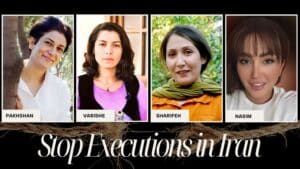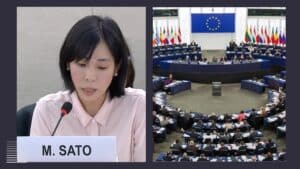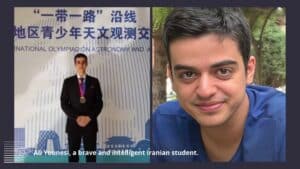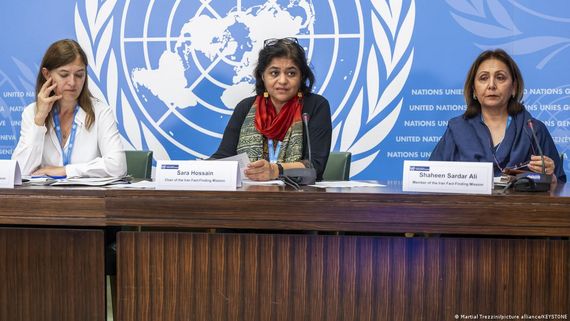On March 15, a significant human rights conference took place at the Press Club in Geneva. This conference brought together 9 survivors of the 1988 massacre of 30,000 prisoners and 3 family members of those executed. They presented documents and reports to UN Special Rapporteurs on the arbitrary executions and the disappearances of friends and family members. Additionally, a human rights activist from Iran, who was arrested during recent civil protests and is the father of a protester killed by the regime’s repressive forces, participated via video conference.
The conference also featured the presence of UN ambassadors and experts, advisors from the Office of the High Commissioner for Human Rights, human rights advocates, various NGOs, UN working groups, and renowned international jurists who discussed human rights violations in Iran.
Key speakers included:
- Aua Baldé, Chair of the Working Group on Enforced or Involuntary Disappearances (WGEID)
- Karen Smith, Special Adviser to the UN Secretary-General on the Responsibility to Protect
- Geoffrey Ronald Robertson, former Chief Judge of the UN War Crimes Court in Sierra Leone (SCSL)
- Tahar Boumedra, Chair of JVMI (Justice for the Victims of the 1988 Massacre in Iran) and former Head of the UN Human Rights Office in Iraq
- Kevin Jon Heller, Special Adviser to the Prosecutor at the International Criminal Court for War Crimes
- Wolfgang Schomburg, Judge at the UN War Crimes Tribunal for the former Yugoslavia
- Kirsty Brimelow, Barrister and former Chair of the Human Rights Committee of the Bar Council of England and Wales (BHRC)
- Sheila Paylan, former Human Rights Officer and SGBV Specialist at the UN Human Rights Office
Highlights from the Speeches:
Prof. Javaid Rehman, UN Special Rapporteur, stated:
“In 1988, thousands of these prisoners were extrajudicially executed under a fatwa issued by the then-Supreme Leader of Iran, which was implemented in prisons across the country.” He further emphasized, “After the massacre, Khomeini’s henchmen were indeed rewarded and promoted to high positions in the country’s politics and judiciary. As we know, many of them still hold these senior positions today. The current Iranian president was a member of the death commission, and many witnesses have already pointed to his role in the mass executions of 1988.”
Aua Baldé remarked:
“Today’s event reminds us that the victims of enforced disappearances, including their families, have been fighting for justice and truth for more than three decades. It also serves as an important reminder that impunity continues to prevail.”
Karen Smith reiterated that the 1988 massacre constitutes a crime against humanity:
“I would like to echo the call of human rights experts and NGOs for the UN Human Rights Council to expand the mandate of the inquiry commission to include the events of 1988 or to establish another independent inquiry commission in this context.”
Kevin Jon Heller added:
“Since the 1988 massacre can be classified as genocide, all 152 countries that have ratified the Genocide Convention can sue Iran before the International Court of Justice.”
Geoffrey Ronald Robertson stressed:
“Prisoners are the most vulnerable of all people. Their lives are in the hands of the government. That’s why international law is particularly important for them. The way prisoners are treated in Iran is horrifically cruel.”
Wolfgang Schomburg stated:
“I am firmly convinced that if we believe in future peace and see such crimes, we must intervene.” He added, “No one ever thought there would be a real International Criminal Court where many of us would serve as judges. I think that’s reason enough to be optimistic about the future.”
Sheila Paylan reminded the audience:
“The recent events in Iran remind us of the consequences of unchecked power and the importance of protecting human rights. The legacy of the 1988 massacre underscores the need for transparency, accountability, and justice in addressing past atrocities, without which the cycle of violence and oppression will undoubtedly continue.”
Dr. Tahar Boumedra described the challenging task of achieving justice for the 1988 massacre and said:
“It is crucial that we do everything we can to ensure progress at the UN General Assembly and also that there is a decisive breakthrough through the application of universal jurisdiction.”









